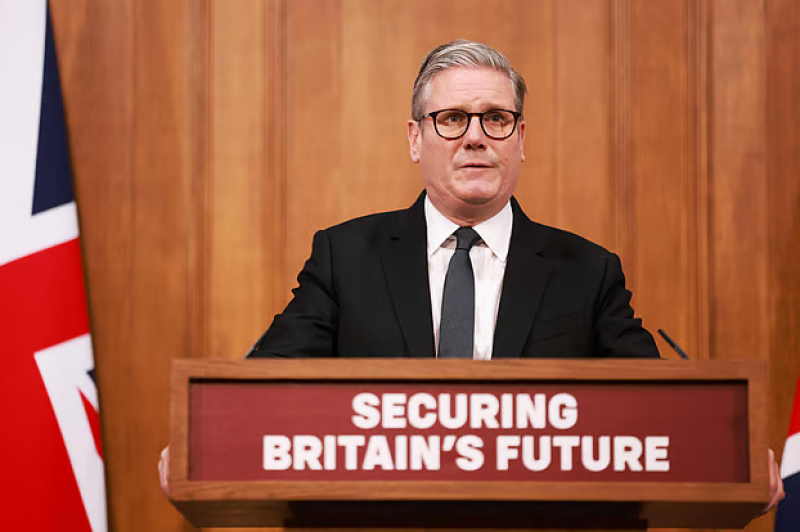- India Sees 9% Drop in Foreign Tourists as Bangladesh Visits Plunge |
- Dhaka Urges Restraint in Pakistan-Afghan War |
- Guterres Urges Action on Safe Migration Pact |
- OpenAI Raises $110B in Amazon-Led Funding |
- Puppet show enchants Children as Boi Mela comes alive on day 2 |
UK Unveils Stricter Immigration Rules to Cut Numbers

Prime Minister Keir Starmer speaks at a press conference at 9 Downing Street, London, on 12 May 2025, ahead of the release of the Government’s Immigration White Paper.
Prime Minister Keir Starmer on Monday announced a sweeping overhaul of the UK’s immigration system, pledging to “finally take back control” of the country’s borders as part of a new strategy to reduce migration and counter growing pressure from right-wing parties.
The Government’s Immigration White Paper, due to be presented in parliament later in the day, outlines a series of strict new measures intended to bring down net migration, which stood at 728,000 in the year to June 2024.
Starmer said the new policy would “close the book on a squalid chapter for our politics, our economy and our country,” signalling an end to what he described as an “experiment in open borders” under the previous government.
Among the major changes, the qualifying period for settlement and citizenship will be extended from five to 10 years. English language requirements will also be tightened, requiring all adult dependents to demonstrate a basic level of proficiency.
“When people come to our country, they should also commit to integration and to learning our language,” Starmer said, adding that every area of the immigration system—including work, family, and study routes—would be tightened, and enforcement strengthened.
The move comes as public concern over migration grows and as anti-immigration parties gain traction in recent local elections.
Interior Minister Yvette Cooper, who is set to present the White Paper in parliament, described the measures as a “radical package of reforms.” The plans include new powers to deport any foreign nationals convicted of a criminal offence, rather than only those receiving sentences of more than one year.
Under the new rules, all convicted foreign nationals will be flagged to authorities for possible removal. The government also plans to cut 50,000 lower-skilled worker visas this year and raise the bar for skilled worker visas by requiring most applicants to hold a university degree.
High-skilled individuals—including doctors, nurses, engineers, and experts in artificial intelligence—will be prioritised and offered fast-track routes under the revised system.
“For years, the system encouraged reliance on low-paid foreign labour rather than investment in domestic workers,” said Starmer.
The government is also under increasing pressure to address illegal Channel crossings. More than 36,800 people made the journey last year in small boats, and at least 84 died in the attempt, including 14 children.
Since last July’s general election, over 24,000 individuals with no legal right to remain in the UK have been deported—the highest removal figure in eight years.

